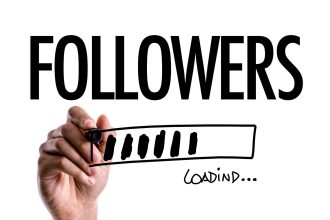The work landscape has changed dramatically over the past few years, and the shift to remote and hybrid roles has reshaped how companies and employees engage with one another. As organizations adopt flexible work environments, employees must adapt to this new way of working, and part of that adaptation is optimizing their resumes to stand out in the competitive job market. This article will explore how to tailor your resume for remote and hybrid roles and why it’s crucial to adjust it to meet the demands of this evolving work culture.
- Understanding the Shift to Remote and Hybrid Work
- The Importance of Tailoring Your Resume for Remote and Hybrid Roles
- Key Sections to Focus on for Remote and Hybrid Work Resumes
- 4. Remote-Specific Keywords
Understanding the Shift to Remote and Hybrid Work
Remote work, which allows employees to perform tasks from anywhere, has become increasingly popular. Hybrid work models, where employees work in the office and remotely, are also gaining traction. These temporary trends represent a significant shift in how businesses operate and employees interact with their employers.
This evolution means that employers’ expectations of job seekers are also changing. Remote and hybrid work environments come with unique challenges, including communication barriers, digital collaboration tools, and the need for greater self-discipline. Therefore, job candidates must be ready for this transformation by adjusting their resumes to highlight relevant skills and experiences.
The Importance of Tailoring Your Resume for Remote and Hybrid Roles
In today’s competitive job market, your resume is often the first impression you make on a potential employer. A generic, one-size-fits-all resume may not capture the attention of hiring managers, especially those looking for candidates who can thrive in a remote or hybrid work environment.
A tailored resume speaks directly to the specific needs of remote and hybrid roles, making it easier for hiring managers to see that you have the skills necessary to succeed in these environments. From showcasing your communication skills to demonstrating proficiency in digital tools, every detail on your resume should convey your readiness to excel in the future of work.
Key Sections to Focus on for Remote and Hybrid Work Resumes
1. Skills and Competencies
One of the most important aspects of preparing your resume for remote or hybrid roles is highlighting the specific skills and competencies required for success in these environments. Unlike traditional office-based roles, remote work requires a unique set of abilities, including:
- Strong Communication Skills: Since remote and hybrid roles often require communication via email, video calls, or chat, employers will look for candidates who can express themselves clearly and effectively without relying on face-to-face interactions.
- Time Management and Self-Discipline: Remote work demands employees who can manage their schedules and meet deadlines without constant supervision. Showcase your ability to work independently and stay organized.
- Tech-Savviness: Familiarity with collaboration tools such as Zoom, Slack, or Microsoft Teams is crucial for remote roles. Be sure to list the tools you’re proficient in and any certifications or training related to these technologies.
These are just a few examples of the skills employers will seek when evaluating candidates for remote or hybrid positions.
2. Work Experience and Achievements
When listing your work experience, focus on accomplishments demonstrating your ability to succeed in remote or hybrid roles. Include any remote work experience, whether part-time or freelance. This is worth highlighting if you have experience managing virtual teams or collaborating with international colleagues.
For example, if you successfully led a virtual project, mention how you communicated with team members across different time zones and used digital tools to manage the project. This shows employers that you have the skills to work remotely and know how to navigate the challenges that come with it.
3. Education and Certifications
While education is important, it’s increasingly essential to demonstrate a commitment to continuous learning, especially in tech-driven industries. For remote and hybrid roles, consider listing any online courses, webinars, or certifications you have earned that are relevant to the role you are applying for. This might include certifications in project management, IT, or remote-specific skills such as virtual team management or remote customer service.
Some resume-building platforms, like Zety’s resume builder, allow you to easily incorporate these additional certifications and ensure your resume reflects your ongoing professional development.
4. Remote-Specific Keywords
Using the right keywords can help your resume get noticed by applicant tracking systems (ATS), which companies often use to screen resumes. Incorporating relevant keywords for remote or hybrid roles is essential. Here are some keywords to consider:
- Remote work experience
- Virtual collaboration
- Telecommuting
- Distributed team management
- Digital communication tools
- Self-motivated
- Remote project management
By including these terms where applicable, you ensure that your resume aligns with the skills and experiences companies seek in remote and hybrid employees.
Why Your Resume is More Important Than Ever
Previously, resumes were primarily used to demonstrate an applicant’s qualifications for a specific role. While this is still the case, the rise of remote and hybrid roles has made the resume even more significant. With fewer in-person interviews, hiring managers rely on resumes to gauge a candidate’s fit for the role and the company culture.
A well-crafted resume is the first step toward securing a remote or hybrid job. It gives employers the confidence that you can handle the unique aspects of a flexible work arrangement. Whether showcasing your ability to work independently or demonstrating your familiarity with digital tools, your resume should clearly reflect your ability to succeed in a remote or hybrid role.
Formatting Your Resume for Maximum Impact
When preparing your resume for remote or hybrid roles, it’s important to ensure that your resume format is clear, easy to read, and visually appealing. Here are a few tips to consider:
- Choose a Clean, Professional Layout: Avoid clutter and choose a resume layout that is straightforward to read. Prioritize clear headings, bullet points, and consistent formatting.
- Keep It Concise: A resume should ideally be one page for early-career candidates and two for more experienced applicants. Ensure your resume is concise, focusing on the most important skills and experiences relevant to the role.
- Tailor It for Each Job Application: Don’t rely on a generic resume for all applications. Instead, tweak your resume for each job, focusing on the skills and experiences that align with the specific role.
Conclusion
As the future of work evolves, preparing your resume for remote and hybrid roles is essential in securing your next job opportunity. By emphasizing the skills, experiences, and keywords that align with the demands of flexible work environments, you can position yourself as a top candidate. Whether you’re new to remote work or have experience working from home, a well-crafted resume will help you navigate this changing job market and succeed in the future of work.














